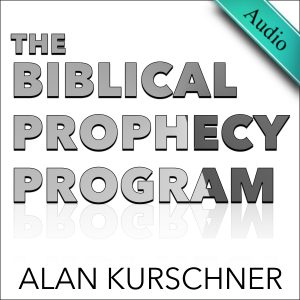 Why premillennial theology matters is an issue that every student of biblical prophecy needs to be aware of.
Why premillennial theology matters is an issue that every student of biblical prophecy needs to be aware of.
Premillennialism teaches that at Jesus’s second coming he will deliver the righteous and judge the ungodly. Then the righteous will enter into a period—the millennium—of peace and righteousness where Jesus establishes on earth his physical reign of all nations—including a restored nation of Israel who recognizes him as the Messiah. All nations will worship Jesus as King and Lord. The future millennium will be characterized socially, politically, ethnically, and spiritually.
I believe premillennialism is the correct biblical view because the narrative in Revelation 19:11—20:6 indicates this. Traditionally, interpreters have mistakenly started the millennial debate at chapter 20. But the narrative context begins before Revelation 20. There is a cause and effect action where the victory of Jesus at the battle of Armageddon will cause the defeat of the three enemies of God: the beast (i.e. Antichrist), the false prophet, and Satan. The passage states that Satan’s immediate punishment will be his binding in the abyss for 1,000 years (i.e. the millennium). In short, since Jesus’s battle victory occurs during his future second coming, the binding of Satan must begin at the second coming.
I gave four reasons why holding to the premillennial view is important, and thus why the millennial debate matters.
First, Satan is not bound during the church age (contra Amillennialism), but instead he is “a roaring lion . . . on the prowl looking for someone to devour” (1 Pet 5:8). Premillennialism takes seriously the spiritual warfare that the Bible portrays within the spirit world, especially as it will escalate just before Christ returns.
We are also not living in the blessed millennial age. We are living in a wicked age where injustice, immorality, and no fear of God dominates this world. We long for the day when our righteous King returns to defeat his enemies and “break them with an iron scepter; [and] smash them like a potter’s jar!’” (Psalm 2:9).
Second, premillennialism rightly takes into consideration the complex nature of God’s dealings with his people. Amillennialism, on the other hand, views the return of Christ as an overly simple event, monochromatically. That is, there is no emphasis on the events leading up to the return of Christ; basically, in their schema, the return of Christ will happen in a single day, and we will all be suddenly ushered into the eternal state.
This is not what the Bible depicts. Rather, the premillennial view rightly views a complex-comprehensive whole in which God will fulfill his redemptive purposes through stages: Antichrist’s great tribulation, eschatological suffering of the church and Israel, resurrection, rapture, the day of the Lord’s wrath (itself a complex series of events), salvation of Israel, new heavens and earth, the complex social, ethnic, political, material aspects of the millennium, Satan’s final defeat—then finally the eternal state.
Third, premillennialism does not believe that the world will increasingly get better before Christ returns (contra postmillennialism, Pat Robertson, Gary DeMar, et al.). There are many postmillennial churches that are misleading God’s people teaching that God will use politics as a means to better this world and prepare the world for the gospel.
Premillennialism teaches, instead, that the Bible shows the world will increasingly become more wicked before Christ returns, and that only Christ himself will usher in the age of righteousness (1 Thess 1; Mark 13, Luke 17, 21; Matt 24; Revelation; the Old Testament passages are too numerous to list here).
Fourth, premillennialism (at least most) affirms the unconditional promises to national Israel. God will remain faithful to his promise to Israel. Amillennialism and postmillennialism denies a future reconstituted national Israel, and thus denies God’s faithfulness to his promise to Israel. This is important to the millennial debate because it relates to one’s fundamental approach to biblical interpretation. In addition, it will distort their theology of the nature of the church and its role in God’s redemptive purposes.
The post Why Premillennial Theology Matters – Ep. 140 appeared first on ESCHATOS MINISTRIES.
















